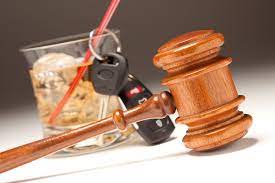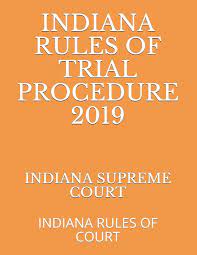You might be wondering how a misdemeanor will affect your chances of employment if you’re one of the countless Americans who have been jailed for unrelated crimes.
To begin with, know that you are not alone. According to data from the National Institute of Justice, one-third of Americans under the age of twenty-three have been arrested. Many people’s criminal histories include convictions for misdemeanors. Their work prospects may suffer as a result of these records, but they don’t have to.
Misdemeanor convictions can affect employment search, although they are less severe than felonies, and some businesses only inquire about felonies. As a result, you should be ready for anything that can happen, especially in regards to criminal background checks.
Does a Misdemeanor Affect Employment
Even if you have a misdemeanor conviction on your record, you can still acquire employment. No state or federal legislation prevents someone with a criminal record from finding employment.
However, a history of petty convictions could complicate the application procedure.
- Someone with a history of criminal conduct may cause a prospective employer to hesitate or maybe reject their application.
- Conviction histories for misdemeanor drug offenses may provide a challenge when applying for jobs in the medical industry.
- A minor domestic abuse charge on your criminal record may hinder your career in counseling or law enforcement.
- It should be noted that if you have a DUI conviction on your record that occurred within the last few years of the date of your rideshare job application, both Uber and Lyft will not let you work as a driver for their services.
- People with a prior conviction may find it challenging to obtain stable jobs due to certain petty charges.
- Effort to locate a secure and safe place to live,
- Not be able to get a loan, and
- Accumulate significant debt.
- However, compared to the difficulties faced by convicted felons or those with prior felony convictions, any job search issues resulting from a misdemeanor conviction are minor.
Your Rights Under the Law
Your legal rights regarding employment are not automatically waived just because you have been convicted of a misdemeanor. For starters, you are not required to reveal offenses that were expunged from your record or arrests that resulted in no convictions.
Furthermore, lots of state and federal restrictions limit the use of criminal histories by companies during the hiring process.
Although there aren’t many regulations like this in Texas, it is against the law to use a criminal arrest and conviction that occurred more than seven years ago in a background check for a position that doesn’t require immediate danger and pays at least $75,000 annually.
Following a conviction in Texas and a pardon, applicants may contest the existence of criminal records that have been rid of through a judge’s order.
Fair Credit Reporting Act Protections
Applicants for jobs with criminal records are also protected by two federal laws.
The Fair Credit Reporting Act (FCRA) is one of them. One of its safeguards for prospective employees is guaranteeing the precision of criminal history investigations. These checks are prone to inaccuracies, such as giving false information about convictions that have been overturned or inadequate information on charges being dropped or an exoneration from a crime.
Misclassification of crimes, presenting records belonging to a different individual with the same name, and having several listings for the same violation are examples of additional background check problems.
To safeguard job candidates, businesses are required by the Fair Credit Reporting Act (FCRA) to:
- Before making such a request, obtain the written consent of the job applicant.
- Inform job applicants if a background check is going to be used as a screening tool.
- Notify job candidates if a background check results in the employer deciding not to consider them.
Companies that collect and offer background checks also must guarantee the timeliness and accuracy of this data. If job candidates contest the information, those companies are required to look into the matter and disclose any inaccuracies that were, if any, made.
Title VII: Protection against Employment Discrimination
The Civil Rights Act of 1964’s Title VII is an additional protective federal legislation. It forbids discrimination in hiring procedures and other aspects of work. Practices that disproportionately exclude people based on their race, ethnicity, or membership in another protected class are prohibited by law.
Given the greater arrest rates among some groups, such as African Americans and Latinos, an employer who has a policy of not considering applicants with criminal histories may be held accountable for engaging in racial discrimination.
Employers are granted safeguards by the Equal Employment Opportunity Commission (EEOC), which permits them to reject candidates who may be hazardous or represent a risk to public safety—so long as there is no discriminatory intent based on race.
However, the EEOC also advises employers to offer criminal record holders an opportunity to clarify their situation and support their hiring decision. This can be quite beneficial.
Does a Misdemeanor Affect Employment: FAQs
In Texas, how long is a misdemeanor recorded on your record?
Unless the court expunges the conviction, a misdemeanor conviction in Texas stays on the person’s criminal record indefinitely. On the other hand, some misdemeanors might qualify for non-disclosure, which restricts access to the conviction for specific organizations and people.
In Minnesota, how long is a misdemeanor recorded on your record?
There are states with shorter durations and states with longer durations. In Minnesota, unless someone gets their record expunged, a misdemeanor will be on their record permanently.
Which misdemeanor is the lowest?
The least serious misdemeanors are classified as Class C, or Level Three. These offenses carry a potential one-year jail sentence, fines, and probationary periods. All state and federal criminal codes categorize crimes into two categories: misdemeanors and felonies.
In Texas, how can I expunge a misdemeanor from my record?
To have the infraction expunged from your record, you must file a petition with the court. The court will approve your petition if you have fulfilled all prerequisites, including serving jail time, completing community service, and paying fines and restitution.
Does a Misdemeanor Affect Employment: Conclusion
Rather than waiting to reply to a flagged background check, you might want to disclose your misdemeanor record on your own.
Even while you are not required to disclose arrests that resulted in no convictions or misdemeanors that were expunged from your record to prospective employers, it can be wiser to do so. According to the Houston Chronicle, disclosing a misdemeanor may help you land a job.
Being sincere shows that you accept accountability for your deeds. It also offers you an opportunity to discuss how the experience has helped you develop and learn. On the other hand, trying to conceal your criminal past may hurt your prospects of getting hired more than the record itself.
When applying for jobs following an arrest or conviction for a misdemeanor, bear all of this in mind.
Read Also:



